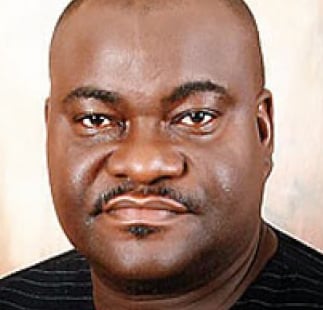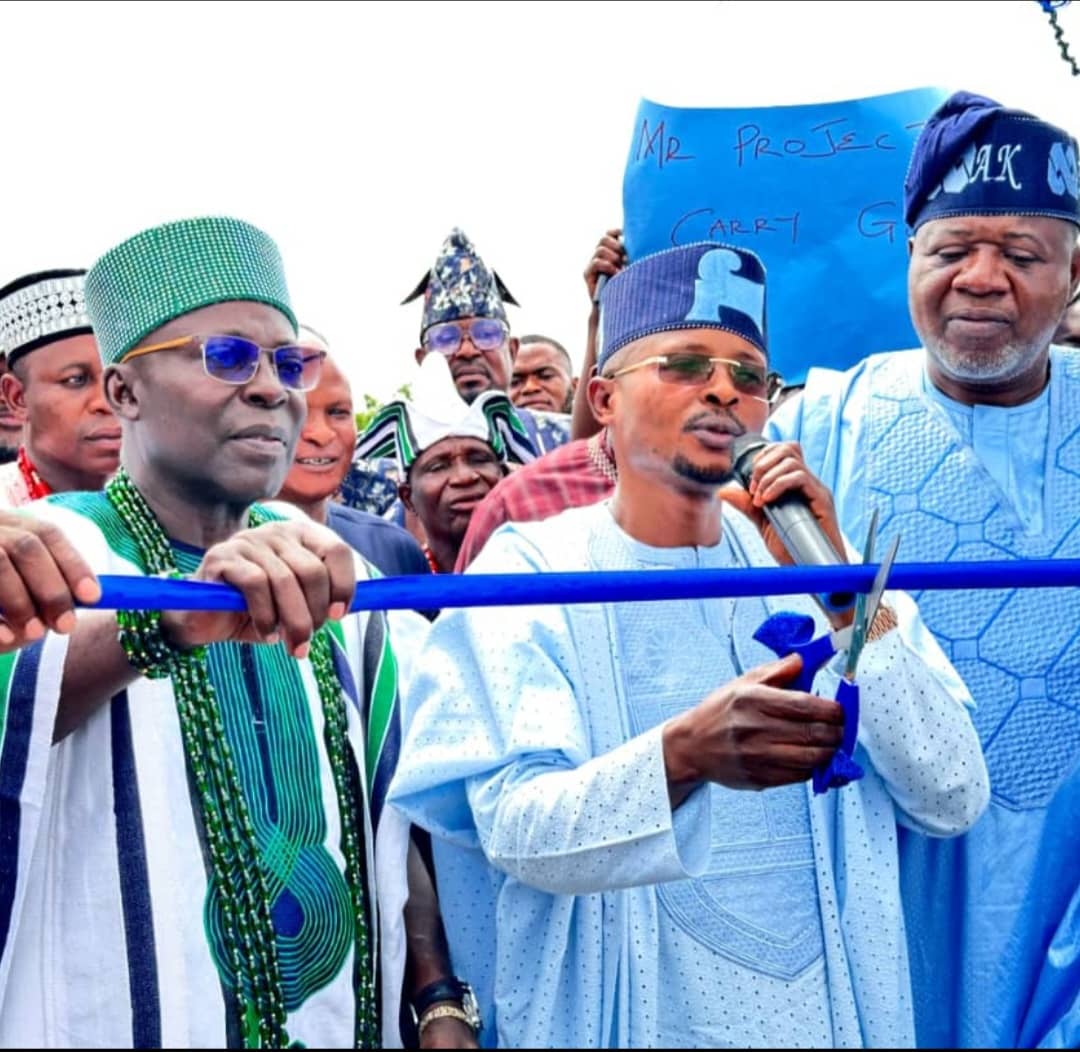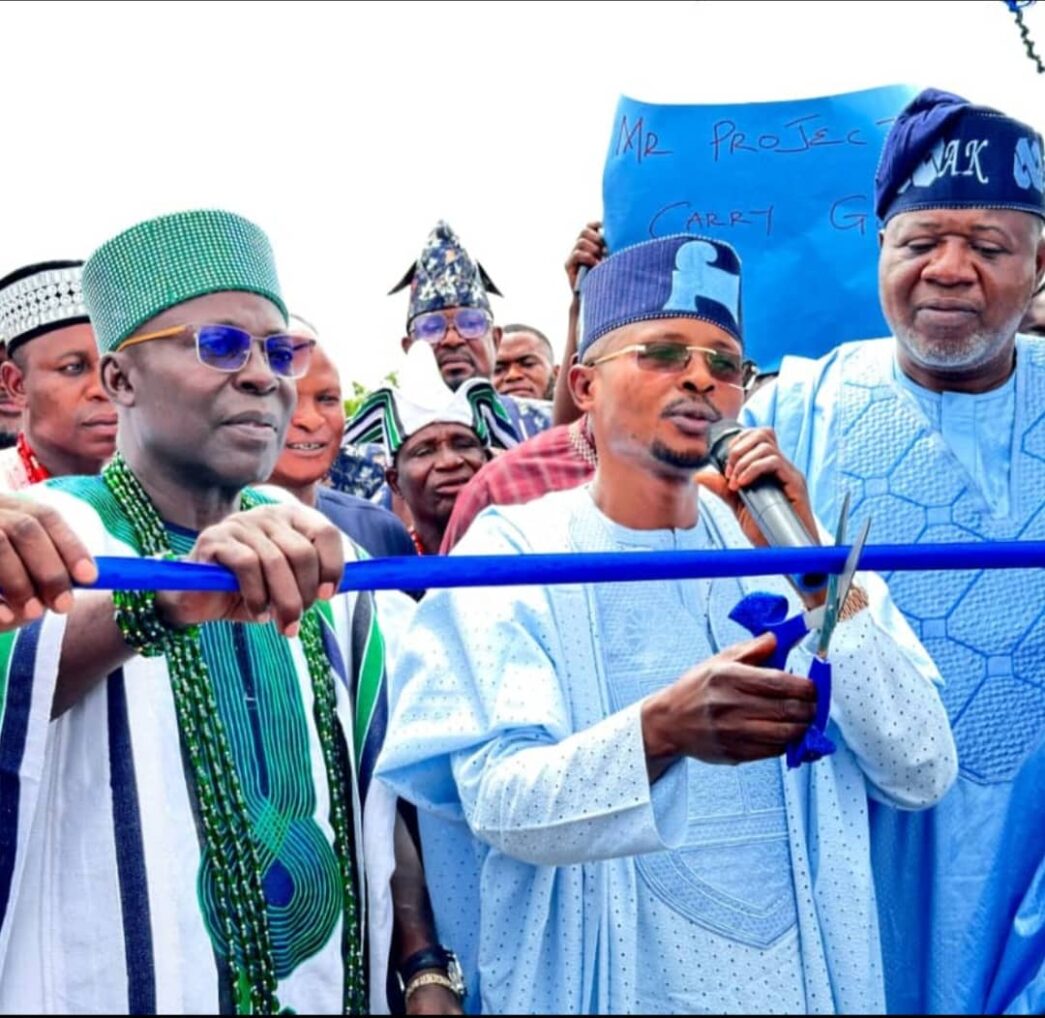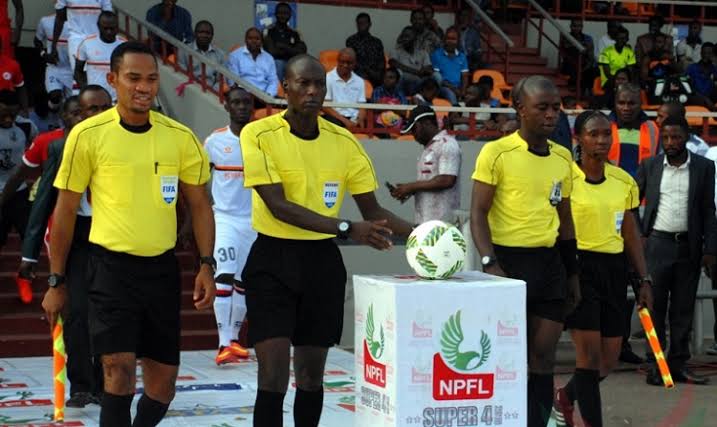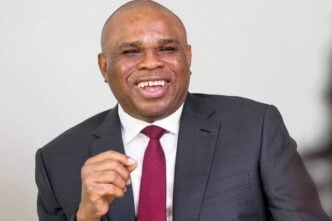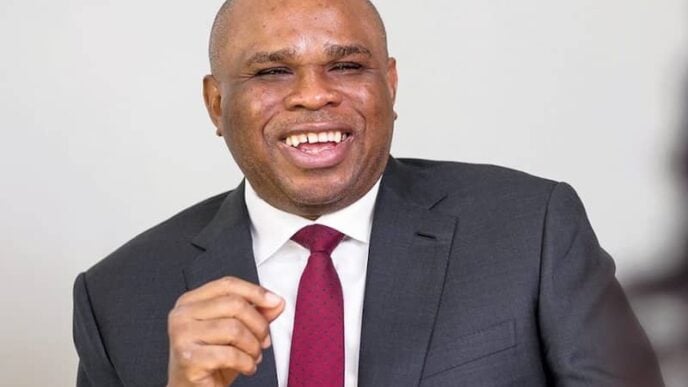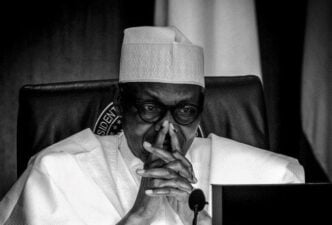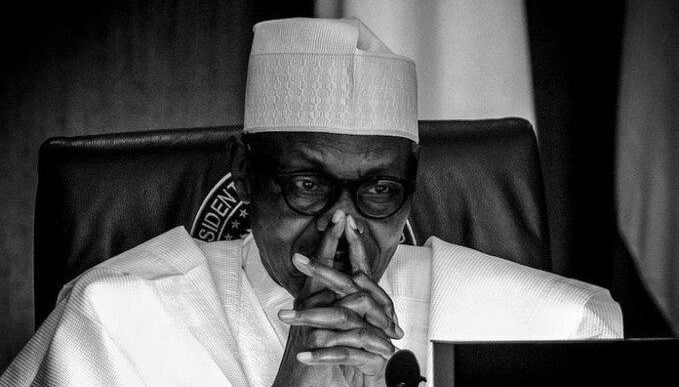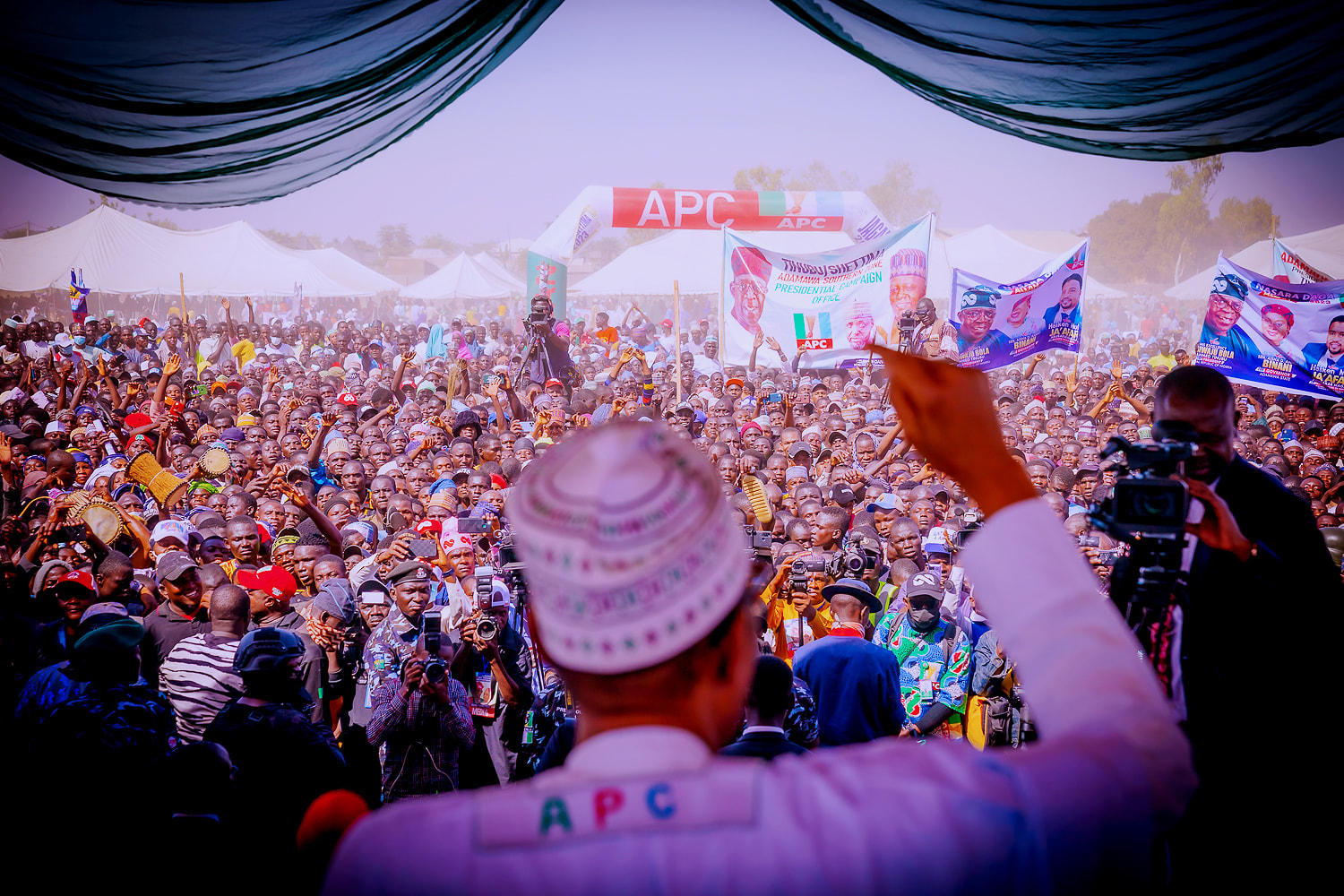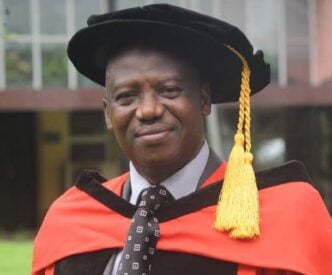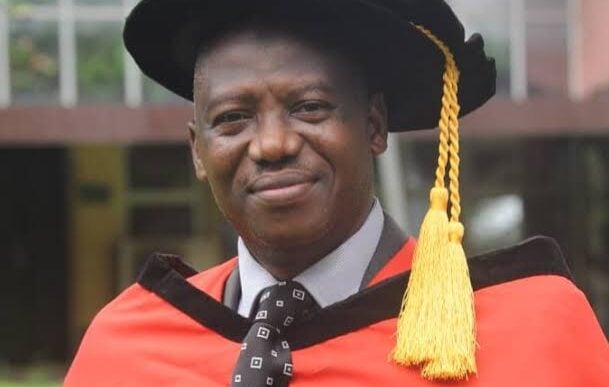The Agbana of Isanlu, Oba Moses Babatunde Etombi, (left); Hon Leke Joseph Abejide and Chief Henry Oluseyi Omotoso, at the commissioning of the Isanlu Townhall Driveway, in the accompanying photograph, last April
Nigeria’s systemic failure over time has unwittingly reordered the delineation of responsibilities for the provision of services, and the prosecution of infrastructural development and rehabilitation, somewhat tricky. The construction and maintenance of public infrastructure such as roads, bridges, culverts, drainages, hospitals, schools, libraries, provision of water systems, among others, primordially, were the responsibilities of the executive arm of government at each tier. Either because of the escalation of the scope, size and spread of these imperatives over time, the fact of under-budgeting or underfunding, or outright negligence by institutions charged with these schedules, many such facilities and services, fell decrepit and unserviceable through the years. Communities, religious missions and philanthropists intervened in places and continue to do so. The rhythm of music of undertaking these necessities, changed markedly, however, since the outset of the present republic.
Public officials, appointed and elected in recent years, are more or less held accountable for the health and functionality of infrastructure within their domains. It wouldn’t matter if these are roads under the purview of the federal or state governments, or healthcare centres built by local government authorities. Four years ago, I intervened in the media, on the question of dreary, decrepit, degenerate road infrastructure in the entire span of the Okun country. My extensive treatise, titled A Harrowing Road Excursion Across Okunland, naturally encapsulated the dilapidated status of roads in Yagba territory. It was graciously serialised in major mainstream tabloids and online publications, as it sought to draw government’s attention to the travails of Okun commuters and travellers from across the country, who had cause to traverse Okun sections of the national road labyrinth.
Leke Abejide the Member Representing Yagba federal constituency in the House of Representatives has embraced these realities with unusual resolve since his advent in the nation’s federal congress in 2019. He represents the monocultural, monolinguistic people of Mopamuro, Yagba East and Yagba West local government areas in the Okun-Yoruba department of Kogi West senatorial zones. His constituents are some of the most educated and cultivated anywhere in the world. In the serial, uncanny intra-state political disequilibrium within Kogi State, however, the Western senatorial zone which encompasses Okunland and Yagbaland, has never been privileged to occupy the leadership position of the state from Lugard House, Lokoja. Phenomenally decrepit infrastructure in that stretch of Kogi State, is generally put down to this alienation in the 34 year history of the state, 26 of which have been under democracy. Self-centredness is a key reality of Nigeria’s politics, a winner-takes-all mentality where office holders nepotistically prioritise their personal and sectional interests, above the common good.
Beyond contributing to making laws for the administration of the country as a whole, beyond drawing attention to, and raising “matters of infrastructural emergency” in his representational catchment, Abejide has had to personally and practically confront the hydra of pain and agony-inflicting situation of roads, bridges and drains in Yagbaland. He was hitherto revered among his constituents, for offsetting the bills of external examinations undertaken by final year students of senior secondary schools across Yagbaland. This responsibility he indeed philanthropically assumed, before his induction into the national legislature in 2019. While not abdicating this responsibility, while concurrently helping to strengthen the hands of his kinsmen in artisanal, vocational and agricultural pursuits, Abejide has metaphorically ventured where angels feared to tread.
Advertisement
The condition of roads in Isanlu the headquarters of Yagba East council area which doubles as the cultural and political convergence hub of Yagba people across three local government areas, has been very troubling over time. Previous governments at the level of the state have attempted remediation of sorts, of some roads in Isanlu, many of which have been threatened by gnawing erosion through the years. Local government authorities have, at best, been unresponsive to these challenges, and have demonstrated a crass lack of imagination. This is often put down to the fact that theircresources are always ever hijacked by, and dismembered as dessert on the tables of power mongers at the state capital. Abejide has moved to build the access road to the Isanlu Town Hall, a prime event centre in the town. It has been completed, commissioned and opened for public use. He is equally rebuilding the road linking Kajola in Isanlu and the Obada market. Drainages are being emplaced as we speak.
Abejide dared the virtually impossible in February this year, when he flagged off the serially forgotten, yet all-important, 60 kilometre Igbagun-Ijowa-Isanlu road, which links over a dozen communities in the agrarian heart of Yagba East council area. As a school teacher upon completion of the National Youth Service Corps, (NYSC), in 1986, my first posting was to Ponyan one of the larger communities in that part of Nigeria. I travelled severally on that route which seemed to me and to many, like the end of the world in its pristine relegation. Especially if you’d been previously pampered by glimpses of difference-making infrastructure in our towns and cities. The administration of Ibrahim Idris who governed Kogi State between 2003 and 2011, made an attempt to build the road in its reign. The cosmeticity of the effort, however, was speedily manifest in the rapid collapse of the road to minimum vehicular exertion and the first burst of rain.
Leke Abejide has proceeded to knock on the doors of the federal government, to enable the initiation of work on the project. The road will equally benefit kinsmen of Yagba people in contiguous Ekiti State, Omuo-Ekiti for instance, being a shouting distance from Igbagun. The sum of N60 Billion has been earmarked to ensure the construction of a road which will remain optimally motorable in decades to come. Fiscal releases will be made by the federal government, consistent with milestones achieved in the construction process. Apart from Igbagun the take-off point of the project, Yagba communities like Alu, Oranre, Ife-Olukotun, Ponyan, Agimi, Jege, Ejuku, Imela, Oke-Agi, Takete-Isao, and the terminus on the Ijowa-Isanlu stretch of the project, will be major beneficiaries of the visionary effort.
Advertisement
Abejide is mindful of the imperative of extending his exertions in infrastructural development in the Yagba country, to Yagba West and Mopamuro council areas, which are also under his legislative jurisdiction. He is drawing from the same pool of resources as his other colleagues in the federal congress, a situation which necessitates prioritisation of projects, subject to the availability of funds. He intends to proceed to the Odo Ere-Igbaruku-Omi-Odo Ara-Ogga-Ogbom road in Yagba West, for which a preliminary N4Billion has been set aside. The Ogbe to Egbe, and the Egbe-Okoloke-Isanlu Esa-Okunran roads, all in Yagba West, are also on the cards. The Okeagi to Ilai as well as the Orokere-Takete Ide roads in Mopamuro are being assessed to enable the articulation of authentic and implementable bills of quantities.
For a legislator who is the sole member of his political party, the African Democratic Congress, (ADC), in the 460-member national assembly, being a “political orphan” can be substantially debilitating. But Abejide is doing so much already, even the circumstances. He has striven to convert this seeming handicap into a source of strength. Two years into his second term, he is retaining his position as Chairman of the House Committee on Customs and Excise. He has mastered the ropes of cooperation and collaboration with colleagues, irrespective of political affiliation. He knows his way around ministries, departments and agencies, (MDAs), with whom he regularly engages so as to sustain multisectoral advocacy for the needs of his constituents. Where necessary, he deploys his acquaintances with sections of the country, notably the core North where he schooled and worked for several years, before his years in his present brief, all in the service of his people.
Olusunle, PhD, Fellow of the Association of Nigerian Authors, (FANA), is an Adjunct Professor of Creative Writing at the University of Abuja
Advertisement
Views expressed by contributors are strictly personal and not of TheCable.
